The man had grown up in a family of hunters, in a place where the sport is woven deeply into the cultural fabric. It’s embraced, celebrated. Blaze-orange “Welcome Hunters” banners are such a commonplace that only their absence is noteworthy.
His particular passion was duck hunting and that alone should tell you how serious he was. You can be a casual pheasant or grouse hunter, even a casual deer hunter, but you can’t be a casual duck hunter. The sport is too demanding, too time-, gear-, and preparation-intensive. If you want to hunt ducks your only option is to go all-in.
One raw, squally morning towards the end of the season he put on an extra layer of clothes, loaded his decoys, shotgun, and Labrador retriever into the skiff, and made for a reedy point that he thought would be good in that wind. He never got there. The motor conked out, the skiff capsized, the flotation cushions scudded away. He tried to swim but between the bludgeoning waves, his waterlogged clothing, and incipient hypothermia he couldn’t make any headway. His situation was grim, and only growing more so.
Driven by sheer desperation, he grabbed the tail of his Lab, who’d been swimming circles around him the entire time. It was as if that was the signal the dog had been waiting for. Without a moment’s hesitation the Lab-turned-tugboat churned directly for shore, effecting the kind of heroic rescue they used to sing songs and write epic poems about. It was the stuff of legend.
Shortly after it happened, a widely read newspaper columnist caught wind of it. He interviewed the man, wrote up the story, and I and thousands of others hung on every word. Dog-braves-elements-to-save-owner-from-certain-death: How can a story push more emotional buttons than that?
More Like This
It was perfect for a publication I worked for at the time, so, not wanting to simply rehash the newspaper piece, I called the man and interviewed him myself. He was eager to share the story—mostly because of the credit it reflected on his dog—and we chatted for a good long while. He couldn’t have been more cooperative, more forthcoming. He seemed like a kindred spirit.
This all happened a long time ago—in the previous century, in fact. I hadn’t thought of the incident in years but then, out of the blue, a magazine editor reached out to ask if I’d be interested in contributing to a special section devoted to stories of “heroic hunting dogs.” The story of the man being towed to shore by his Lab was still the most compelling one I had any ownership of, so I figured I could dust it off and use it again. It’s the kind of story that never grows old; “evergreen,” as they say in the publishing business.
I thought I’d touch base with the man, too. If nothing else, it’d be interesting to get his take on the events of that day now that the passage of time had presumably broadened his perspective. Of course the Lab would be long gone by now, but maybe there was some valedictory note to be added to his story as well.
I typed the man’s name and one descriptor into Google and found him instantly. He was living in a different state (although he was in the same business), and from what I could glean from his website he’d moved there not long after his near-drowning. There was an extensive bio that confirmed he was indeed the same guy, although I had a little trouble reconciling the image in the accompanying photo with my memory of the photos I’d seen years before. (We hadn’t met in person.) It was just a head shot; still, it appeared he’d lost quite a bit of weight. He also looked a lot, well, prettier than I remembered him.
I noticed that hunting was absent from his list of hobbies, but at the time I wasn’t inclined to read too much into that.
The personable woman who answered the phone informed me that the man was with a client but he’d be free in half-an-hour if I cared to call back. I told her that that would be fine, assuming that once I’d reintroduced myself and jogged his memory it’d be old home week. I assumed we’d pick up right where we left off, breezily chatting in the lingua franca of sportsmen as we revisited that terrible and yet triumphant morning when his Labrador retriever saved his life.
But it wasn’t like that at all.
“This is ______,” he said. From the first word, his tone was ice-cold.
I gave him my name, reminding him that we’d talked some time ago and that I’d subsequently written a story about the day he was rescued by his Lab.
A second passed, then another. If his intention was to make me uncomfortable, he succeeded. Finally he broke the silence: “I have no recollection of speaking to you.”
What the hell? I wondered, feeling as if I’d been blind-sided. Is he trying to deny that it ever took place?
I pressed on, referencing the newspaper column that had led me to contact him, certain particulars of his rescue, and so on. His reply was evasive, non-committal. He wasn’t going to give me anything.
When I mentioned that I had an opportunity to republish the story, though, the conversation took an abruptly ugly turn. “I forbid it,” he said, as if through clenched teeth. “You will not republish that story. Ever. Do you understand me?”
“I understand you completely,” I said.
“Good,” he said. And then he hung up.
I sat back heavily in my chair, stunned but even more than that confused, the gears grinding hard to process what had just happened. And, more precisely, to fathom what had changed. Once he’d been eager to share the story of his dog’s gallantry and heroism with the world, but that was then. Now he wanted the story suppressed, buried, forgotten. He wanted it to go away and not come back; the possibility that it might re-surface seemed to pose a tangible threat to him, a clear and present danger.
But why? I kept asking myself. Why?
I struggled to come up with an answer, anything that would help me make sense of the man’s repudiation, or disavowal, or whatever it was of this story—a story, I reminded myself, that remains a matter of public record. One
explanation, I suppose, was that he’d fabricated the whole thing. But that seemed impossibly far-fetched; the story had always rung true to me, and if it was a fiction it’s hard to see what he stood to gain from propagating it.
Another explanation, more plausible but still not wholly satisfactory, was that he’d made some questionable decisions that long-ago morning—starting with the one simply to go—and that these decisions, if brought to light, had the potential to reflect poorly on his judgement. No businessperson wants that, obviously.
I pulled up the man’s website again. It’s an expensive production—slickly packaged, antiseptically glossy. I re-read his bio, studied his photo. He was clearly cultivating a minty-fresh image, one designed specifically to appeal to an upscale demographic….
Of course. It was so obvious. The reason he wanted the story to stay buried was that he didn’t want to be identified—and therefore exposed—as a hunter. It didn’t fit the image, didn’t “play” with his target clientele. You can imagine their horror if they found out: “You were a hunter? Eeewww!” In their minds’ eyes they’d see blood on his hands.
If a person wants to quit hunting that’s his or her choice. But what this man had done, deliberately attempting to erase that chapter of his personal history—and by so doing disavow the profound debt he owed his dog—struck me as repugnant, even kind of creepy. It seemed symptomatic of a deep moral failing, a lack of integrity at the core. If he was willing to adopt a shiny new persona just to turn a buck, selling his soul for a few pieces of silver, what else was he capable of?
A chill went up my spine. I was suddenly glad I lived a long way away from the son of a bitch.
The memory of his dog deserves better.

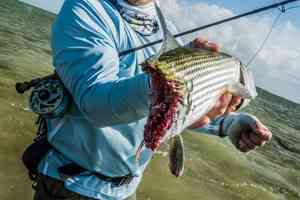
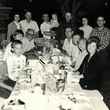

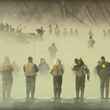












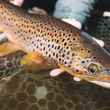









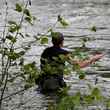
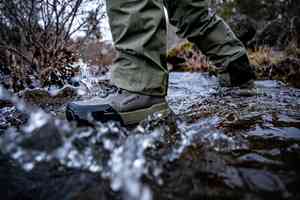



Comments